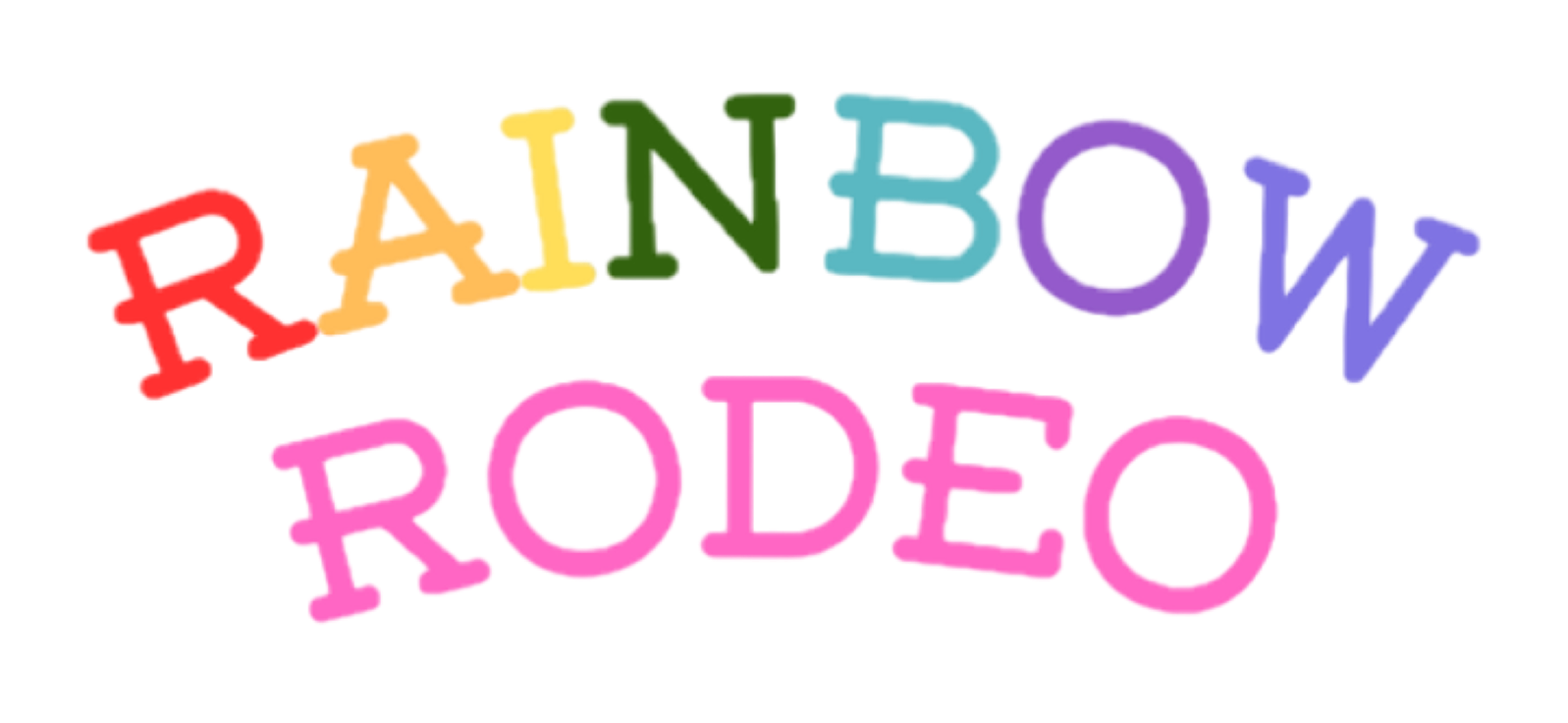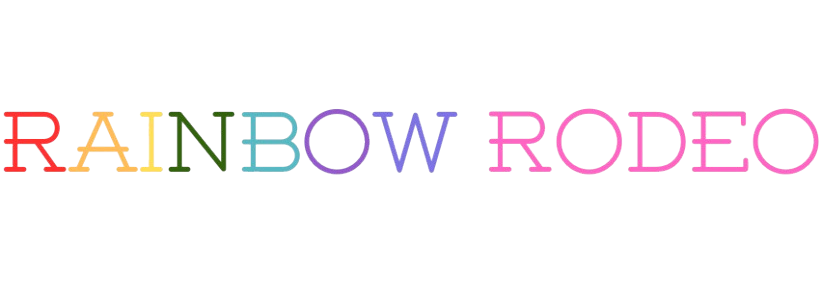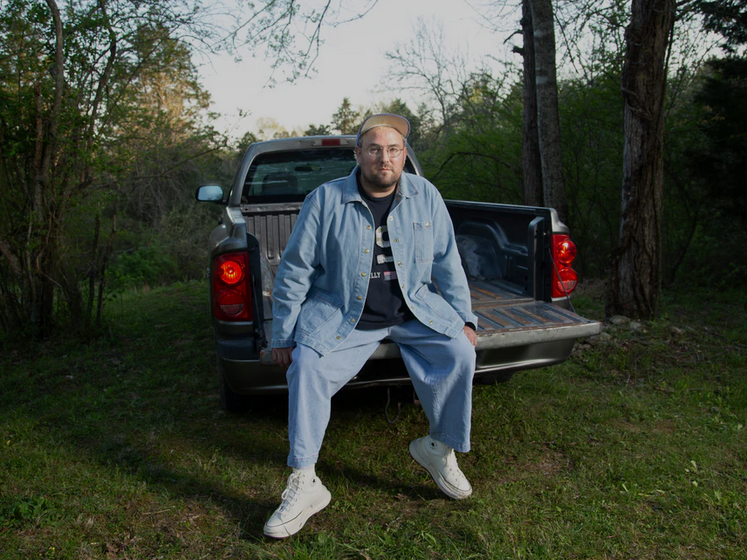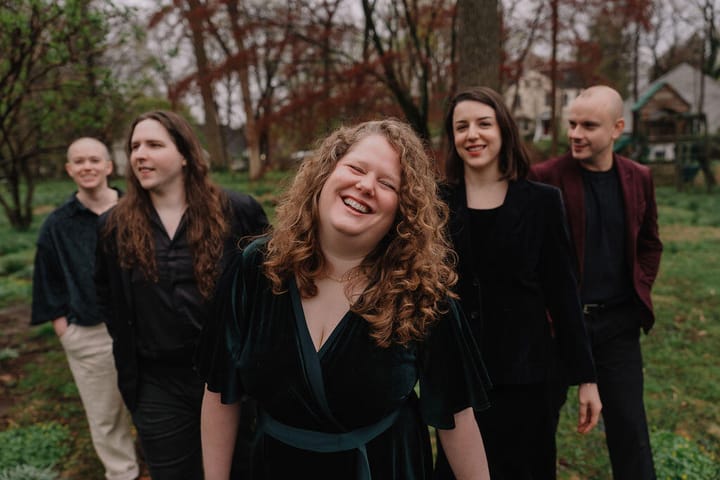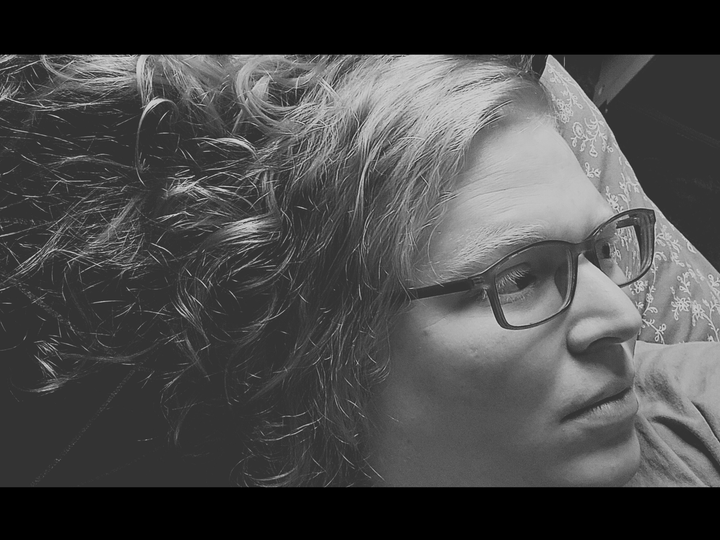INTERVIEW: Semler's Queer Country Awakening
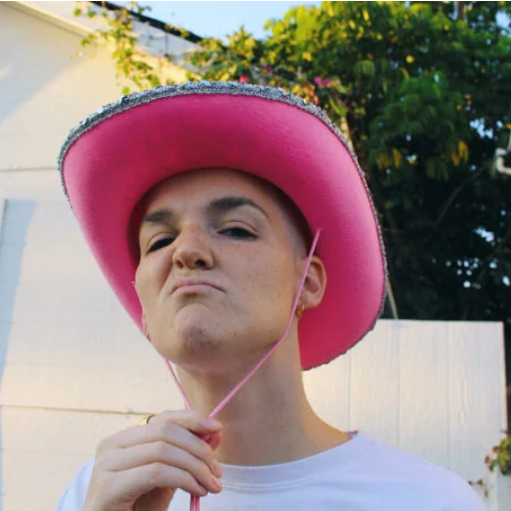
This interview with Semler originally appeared in Rainbow Rodeo issue 2. Subscribe today and never miss out on a Rainbow Rodeo zine!
In March 2021, Semler (aka Grace Baldridge) thoroughly rocked the Chrstian Contemporary Music (CCM) world. She released the EP Preacher’s Kid, detailing her experiences growing up queer in an evangelical tradition. Semler, perhaps taking a page from Lil Nas X’s book, listed the EP as Christian Music, where it shot up the charts. In this interview with CJ Surbaugh, the pair discuss the impact of Preacher’s Kid, the crossover between country music and CCM, and Semler’s second EP (now released), Late Bloomer. — Editor

CJ: I know you had a dog named Willie Nelson who recently passed. Rest in peace to your dog, Willie Nelson, but not yet the human Willie Nelson, thank God. So obviously you have some like country influence, at least in your music fandom. So I was wondering if you could just start by talking about where you see country influences in your music.
Semler: I did not grow up listening to country music, really. I grew up listening to Christian music. But when I was able to download music on my own and find my own music, and it wasn’t just the music that was in the home, I really wanted to expand my horizons and not write off any genre. And growing up in Belgium—overseas, country was always kind of like this joke genre that existed predominantly in the United States. But I felt, for whatever reason, especially called to not write it off. When I started my musical exploration, I’d never listened to Metallica really before. I was a metal head, but it was Christian metal. And it was nu-metal at the time. And I remember going over everything, like: I want to listen to Nirvana. I want to listen to all this stuff and make a concerted effort to broaden my horizons. And I didn’t want to write off country music. I was like, there’s gotta be more than just the hokey stuff that I would hear almost as the butt of a joke. And so I remember looking up country records. And I came across Redheaded Stranger by Willie Nelson, which is a concept album, and the storytelling and how blunt it was—I just resonated with it so much because it packs a punch lyrically. And I liked how you could either be irreverent about your own life, or you could make up a whole different life and write to that. I love that escapism.
So I loved that in, like, I remember listening to “The Pill” by Loretta Lynn and being like, “this is so good!” Having that sort of whip smart, cutting lyricism is something that I really gravitated towards. In Christian music, Relient K was one of my favorite bands, and I liked finding that same lyricism in country music. I think the tradition of storytelling really, really resonated with me. And what would it sound like if I tried telling my own story, with that same instinct for lyricism?
And of course, Dolly Parton. I was just thinking about her the other day, as we all do. I think we all have a moment in our day when we think about Dolly Parton. I was really inspired listening to how she writes every single day when I was trying to get more serious about my songwriting. You look up the most prolific songwriters and you try and learn from them. Dolly Parton was one of those people that I read a lot of interviews about, and how she just is writing constantly. It never turns off. That was really inspiring for me and something that I try and practice as a songwriter now.
CJ: Dolly Parton has that kind of like self-mythologizing. She really leans into camp. And of course, she’s huge for the LGBTQ community. I mean, I think about Dolly Parton all the time. What gay person doesn’t, you know?
Well, my friend texted me yesterday and she was like, “Hey, I said this thing, that was a little weird to you when we hung out the other day.” She thought it was weird. She said, “I hope you weren’t thinking about it too much last night.” And genuinely, I didn’t remember even what she was talking about, but she clearly had said something and she was like, oh no, that was the weirdest thing I’ve ever said. And I was like, “last night, I was genuinely thinking about Dolly Parton and how she’s doing.” That was the only thing I thought about last night. Just thinking about how she’s doing or looking back at her career. Like, wow. Imagine just being Dolly Parton. How could you reflect on all the influence that you’ve had? Wow, what a time.
CJ: You just played your first music festival, right?
Semler: Yes, I did.
CJ: I’d love to hear about your experiences with the Wild Goose Festival.
Semler: It was so fun. I had a great time. When my shows were done, I did party pretty hard afterwards. And I think if I could do it again, I would have partied a little less hard after my shows were done, but I was very excited about it. The reception was incredible. I didn’t know what to expect. I’d never done anything like that before. [My wife] mentioned this to me too, when I was showing her this video that someone took of the 9:00 PM show. And she was like, can you believe that? The song that you wrote in this room where I’m sitting, so much of which was during quarantine? Lizzie was like, isn’t that crazy that people are singing your lyrics back to you? and I think that’s what I really will take away from the weekend. And I think that’s why I partied so hard after this because it’s beyond anything that I even dared myself to consider when I was writing Preacher’s Kid. I really just kept my head down and wanted to get the project out there. I had some things—on my heart, as we say—that I wanted to express. But to be there on stage and look out at people, and to see people singing along, that is what I will remember. And I can’t wait to do more of it. I think it’s a great community activity. And then getting to see other people perform and friends of mine have their speaking events and things like that. I’m very excited to continue in that tradition.
CJ: So you came out of this CCM tradition. I think “Good Man” might be your most classically country song. It’s also a little thematically different from the rest of your EP. What led you to include that sound and that song as part of the narrative on the album?
Semler: Yeah. I love that song a lot. I say this with every degree of humility in me, but I think that’s my Johnny Cash moment, that’s what I was going for. It was really difficult to produce that one at home because I produced Preacher’s Kid on my USB mic. So all the outside sounds were MP3s that I could find for free. So like the sound of a bullet casing hitting the ground—I wasn’t able to record that and actually have pure audio. I had to find that on YouTube.
But I did want that to have this very distinct Western, outlaw country type of flavor to it because that song is about people that continue to betray us people in positions of power. It speaks to individuals specific to me, but I imagine that people could find these figures in their own life. And yet I have this bad habit, I suppose, of rooting for someone or—I really believe that we are good. But we do bad things. And I root for the good person. I root for the good man, the good woman, the good person, in each of us, despite certain people proving that they’re not interested in engaging with that side of them over and over again. And yet I still come back to making excuses. It’s like this lament: I’m not even angry about who they are. I’m just so sad that they choose to continually let me and others down. So that’s what that song is about for me.
It’s definitely one that is close to my heart. It’s something that I needed to get out of my system, because I think those people know who they are in my life. Sometimes that feels good for me, when I write a song where it’s like, “I didn’t have to say this to you cause I know that you heard it on Preacher’s Kid” and that’s all I have. Let that be that, you know; we have nothing more to talk about, really.
CJ: I was listening to “Jesus From Texas” when Texas froze over. So it was [February 5th when Preacher’s Kid came out]. And you’ve gotten huge. People who know you have now like heard some of your like bored, deeply personal songs. Plus all of a sudden, strangers know who you are and are listening to “Jesus from Texas.” I can imagine that that has been insane. What has the aftermath of this meteoric rise been like for you?
Semler: It’s definitely been a dramatic change in my life. I was doing State of Grace right up until the lockdown started, and then I was a little bit listless and reflecting on my time with the last episode we did, about the Christian music industry. It caused me to reflect on why I don’t talk about this part of my life. You know, why do I play it down? As if it wasn’t so formative. I think a little bit of that is feeling embarrassed. Also, you don’t know what someone’s experience has been with religion. So I don’t love to volunteer it as a conversation starter. It’s often not fun. But what ended up happening was that because I was honest for the first time in my song writing.
I’ve had to talk to my parents about things more specifically, which has been good. They’ve both been really receptive to questions, comments, and concerns about our upbringing. I’ve gotten to talk with my brother. I think it is just a little bit strange. Especially because “Jesus from Texas” is such a personal song—and to me it really is the heart and soul of Preacher’s Kid, because it was the first song that I wrote with this type of project in mind. And it is so specific. Anyone that listens to it that knows me, knows exactly like what’s happening in there. It’s strange that that’s the song that has opened so many doors for me. And that so many people have heard it, because if I were to meet these people, I kind of feel like they have a little bit of a head-start to knowing me. Like I don’t have to explain that much to them. That’s nice in some ways, because I think that as artists, all you really are after is to be understood by yourself and by others. This project has kind of catapulted that, or sped up the process of understanding, and I can’t complain about that.

CJ: There’s a lot of crossover between country music and Christian music. So, you make a lot of critiques of the Christian music scene. And I think that they applied to the country music scene pretty aptly as well. You’ve been saying for months that the Contemporary Christian Music establishment needs to be clear about whether or not they’re affirming of LGBT identities, but do you have more prescriptions for Christian music?
Semler: Just be honest with everybody about where you are theologically. I’m not in the business of trying to change anybody, but I do think that being honest and clear is a fair ask. I think with regards to Christian music becoming more inclusive, it is going to come from a diversity of perspectives. We’ve got to get comfortable with people expressing how they experience divinity in a way that is different from how you experience divinity and how you pursue faith. It’s a strange genre to exist in where there’s kind of this weird silent assumption that like, because it’s all Christian music, then every song should appeal to everybody. Where do you see that in any, almost any other genre? A little bit you do in country music, where people will be like, “no, this isn’t country,” or “this is country.” But a country song can kind of be about anything. There’s so many different types of country songs that are about a variety of subjects, but in Christian music, a Christian song is—what does KLOVE say?—positive and encouraging.
I’ve been poring through the book of Psalms. I love it. I don’t necessarily always feel encouraged at the end of reading a Psalm. Sometimes I feel comforted in knowing that struggle and strife and confusion has been something between humans and God all this time. That’s holy, in my opinion. But it’s not necessarily encouraging; it’s not necessarily something that I walk away from being like, “wow boy, the people in the Psalms, whoever wrote this one, they were thriving.” No, they were struggling and that’s great. And that’s okay. And we don’t need to girlboss our way through struggles.
I’m releasing another EP in October. And that is, it is more of an invitation to: what if it was okay? What if God could handle all of your complicated feelings? What if there was a God big enough for that? Have you considered that? Have you considered that anger and sadness and confusion—that these are all holy and worthy and valuable and that you shouldn’t bury them down so you can throw your hands up and praise and worship if that’s not where you’re at?
CJ: I think that’s what makes your music feel so country. Country music stepped into the gap with those imprecatory Psalms—like, angry songs. Christian music doesn’t have it, but you can scream “God’s Gonna Cut You Down” by Johnny Cash when you’re super mad and it’s still a Christian song.
Semler: I guess “God’s Gonna Cut You Down” is a country song. But to me it does have these flavors of gospel music too. I feel that way with a lot of Johnny Cash’s music, you know?
CJ: So can you talk about your new work yet?
Semler: It’s called Late Bloomer, which is also one of the songs on there. It kind of picks up where Preacher’s Kid left off, and the space that I found myself in after preacher’s kid, because I really was going into uncharted waters. It opens up with a Psalm that I put to music, Psalm 102, and that is strikingly different than anything you would have heard on Preacher’s Kid. It’s all about the author going through it, struggling and going through it and cursing God, but also asking for God at the same time. So it’s these really complicated feelings, and then one of the last lines of the Psalm is “let this be recorded for a generation to come.” And that really struck me when I was reading through it. This pain is valuable ,and let it just be recorded so that other people know that. So I opened with that on the EP before I got into the more specific autobiographical songs, because I was so sick of the note that my music wasn’t biblical. So I almost am giving myself that license, and addressing that criticism from the conservative Christians before you even listened to the more autobiographical songs.
Then “Prodigal Girl,” I think you’ll really like; it’s very country. I am thinking about doing a line dance video to it. It’s about the friend from “Jesus from Texas”—I picked up on that thread. In “Jesus from Texas,” the mention of the friend is one of the last lines of the whole song. And I felt I had to get a little bit more out, and so now there’s a full son about that relationship and questions that I still have. It’s sad, but it’s also fun as hell. It’s definitely a line dance. It has a great beat—Jax Sanderson produced it. Then there’s “I’d Rather Be a Ghost” which is about dysphoria. I think that’s going to be a sleeper hit. It starts kind of simple on the guitar, but we really build it in this cool way.Very folk-y.
“Want to Grab Coffee” is about the conversation that Christians do. It’s from their perspective, because I do that sometimes, to cope with stuff. I write jingles that take the bite out of it.So I basically wrote a song from the perspective of the person that takes you to coffee. Then it makes it less scary, at least for me, because it’s like, “do you see how you sound?” Then “Late Bloomer,” which is another sort of autobiographical song about why time is just different for a lot of people. And then it ends on almost this benediction, kind of like “Promised Land” on “Preacher’s Kid,” called “Hallelujah,” which is this celebration of queerness, about how I unlocked my own divinity and curiosity. “Hallelujah” goes hard. It’s huge. It’s the first song I’ve ever had real drums on and I’m really excited for people to hear it.
There are definitely some country flavors on this one, thematically you’ll hear the same slide guitars and things like that. We also tried to keep some of that DIY sound in there. There are a few times you can hear little moments that happened in the recording process. And I hope to keep those in because I’m still an independent artist. So until people want something more polished, I’m still a mess.
